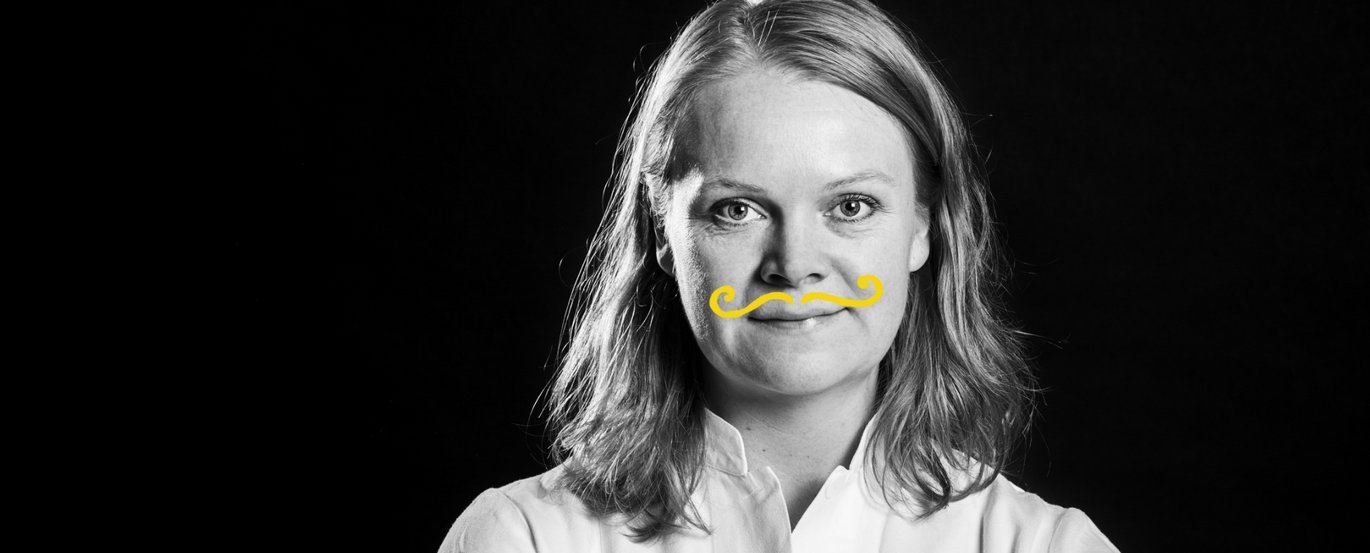Taking the fight to the men
Statistically things do not look good for postdoc Vivi Raundahl Gregersen. There is not a single female professor at the Department of Molecular Biology and Genetics, while 19 out of 21 senior researchers and 27 out of 38 associate professors are men. Nevertheless, she expects to continue her career at AU.

What is the greatest challenge to your career prospects?
"The competition from my colleagues. Even though we get on well, we still fight our corner with all means at our disposal."
How do you feel about that competition?
"You’re under a lot of pressure, but that is part of the game, so you’ve got to learn to tackle it if you want to follow this path."
How are you aware of the pressure?
"If you don’t produce some research which can be published in good journals with high impact, then you’ll end up at the back of the queue. Again, if you’re not one of the people who are good at obtaining funding or getting involved in projects, then you'll also end at the back of the queue.
Then there is also the teaching aspect. That’s something we also participate in while hoping that it can make having a career a little easier."
Is teaching an extra stress factor?
"It can easily be. Just finding the time for it can be difficult. If it coincides with application rounds then you can be a little short of time. Some people really like to teach, but there are also people who don’t enjoy it."
Do rates of publication play too much of a role in relation to the recruitment of academic staff?
"Yes, I feel they do. That is also what I was told by my manager when I discussed it with him: publish, publish, publish! The same thing as my union representative said actually. It really is what counts. That’s just the way it is."
It is fair?
"Well, of course it’s a way of showing what kind of research you have conducted. But I think there are other things that should also count, such as how actively you take part in the teaching obligations."
Is it your impression that men are given preferential treatment in relation to associate professorships and professorships?
"That’s something I’ve discussed with my colleagues - that there previously was a tendency for women to have poorer chances. Whether it’s a question of prejudices or something else? I don't know. But it’s not really something I’m aware of."
Do you recognise the description of the research environment as selfish and a bit macho?
"I would say that, on the contrary, it’s actually about being friendly and helpful. So it’s really the complete opposite. The successful researchers are also those who have a different quality.”
You became pregnant with your second child towards the end of your PhD programme. What did that mean for your career?
"Because I was lucky enough to have had some good results in connection with my PhD, and because I had been employed as a research assistant for three years, I’d managed to publish quite a bit before my maternity leave. So in that sense it was well-timed. Otherwise, getting pregnant at the "wrong" time can easily ruin a career. I don’t doubt that for a second.”
How do you manage work and family?
"I prioritise my time so that I spend more time working during periods where I’m really busy. But on the other hand, there is room for family when I’m not as busy. And then again, you learn to say ‘Okay, now I’m going to submit something that is not 100 per cent perfect, but which I can still put my name on’. You simply have to be able to do that."
Does the department management team understand that?
"Yes, I’m lucky to be employed in a flexible workplace where you have the opportunity to sit at home and work a couple of hours in the evening so you can still pick up the children in good time."
Translated by Peter Lambourne

